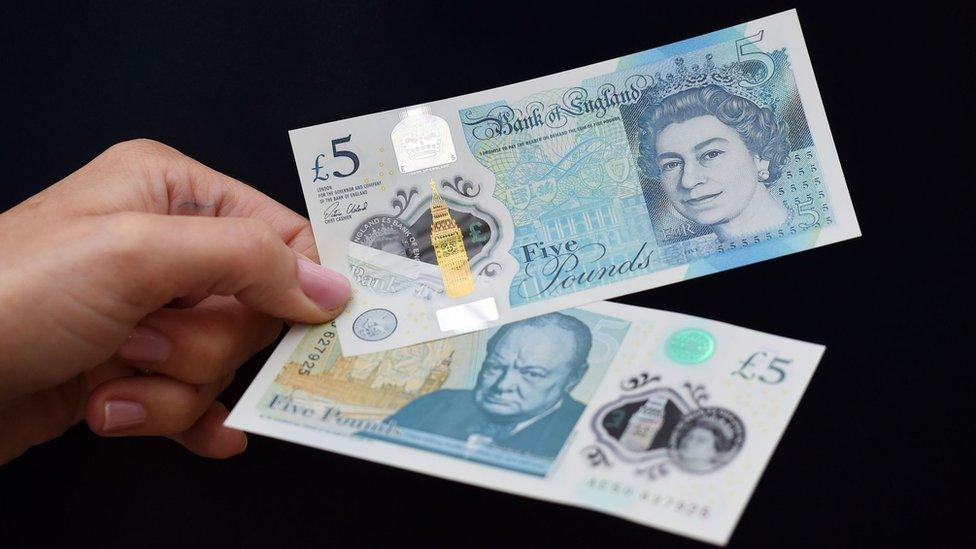New £5 note: Bank to keep note despite animal fat content
- Published
- comments

The new £5 note will not be withdrawn, despite concerns that it contains traces of animal fat, the Bank of England says.
The Bank said it had concluded it would be "appropriate" to keep the £5 polymer note in circulation.
It will also issue the £10 polymer note as planned in September, it added.
Vegans and some religious groups had voiced concerns, as the note contains a small amount of tallow, which is derived from meat products.
'Utmost seriousness'
A petition, external to ban the note attracted more than 100,000 signatures.
The Bank said it treated "the concerns raised by members of the public with the utmost seriousness".
However, the central bank also emphasised that "an extremely small amount of tallow" was used at an early stage of producing the polymer pellets, which were then used to create the notes.
Five facts about the new Winston Churchill fiver
The Bank is still working with its polymer supplier to "determine what alternatives might be available" for the current £5 note and the Jane Austen £10 polymer note.
It said it had spent £46m on printing the £5 note, and £24m so far on printing 275 million of the new £10 notes.
"Reprinting these notes on a new substrate would mean incurring these costs again. It would also require a further £50,000 for the secure destruction of the existing stock," the Bank added.
'Unacceptable'
The petition against the £5 note, hosted on the change.org website, stated that tallow was "unacceptable to millions of vegans, vegetarians, Hindus, Sikhs, Jains and others in the UK".
A number of Sikhs and Hindus have also called for the notes to be banned from temples, where meat products are forbidden.
Hindus believe cows are holy and sacred, and many do not wear shoes or carry bags made from the skin of cattle that has been slaughtered. Practising Sikhs are strict vegetarians.
The new plastic £5 note was introduced in September 2016 and is expected to last an average of five years - compared to two years previously.
- Published30 November 2016

- Published2 June 2016
